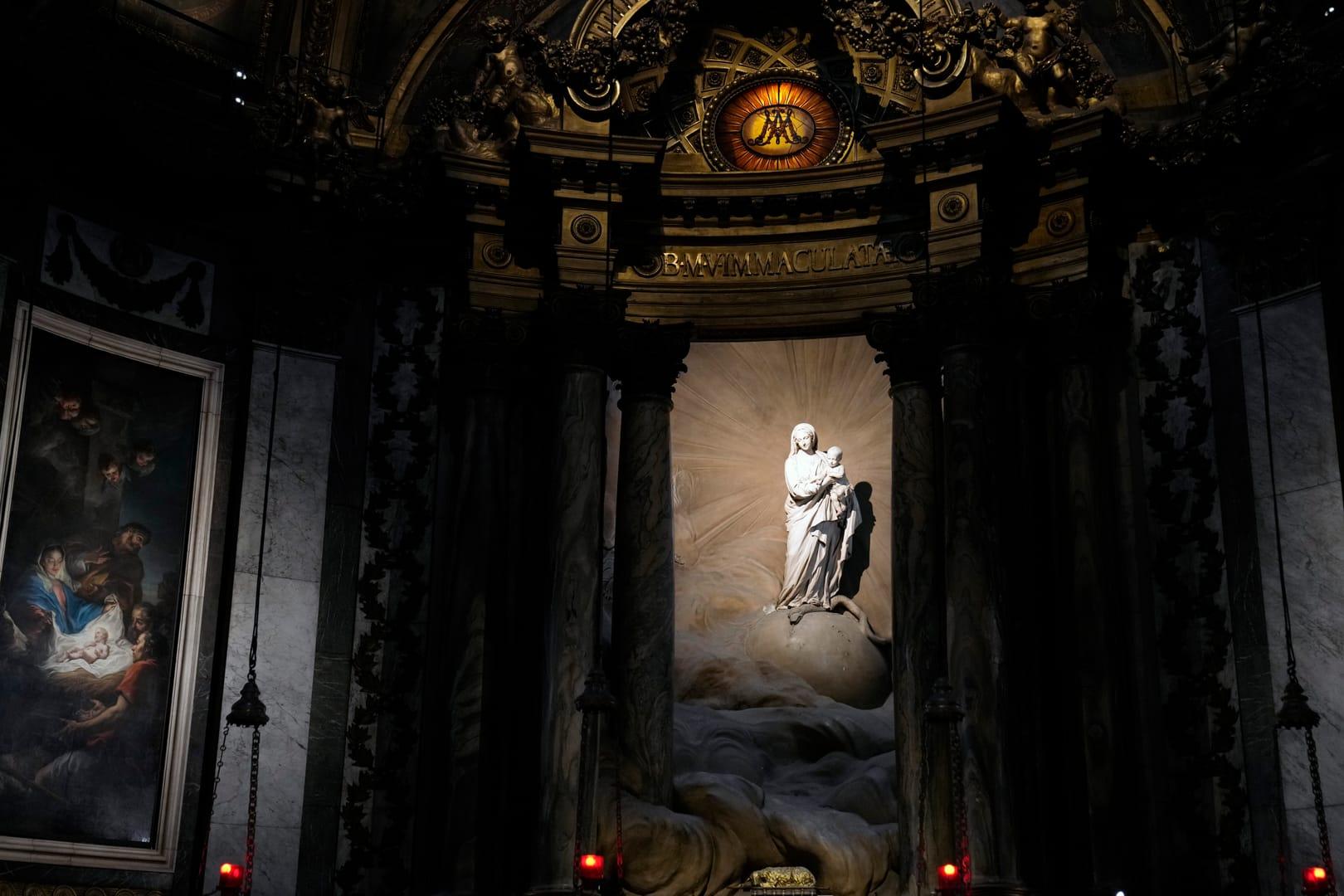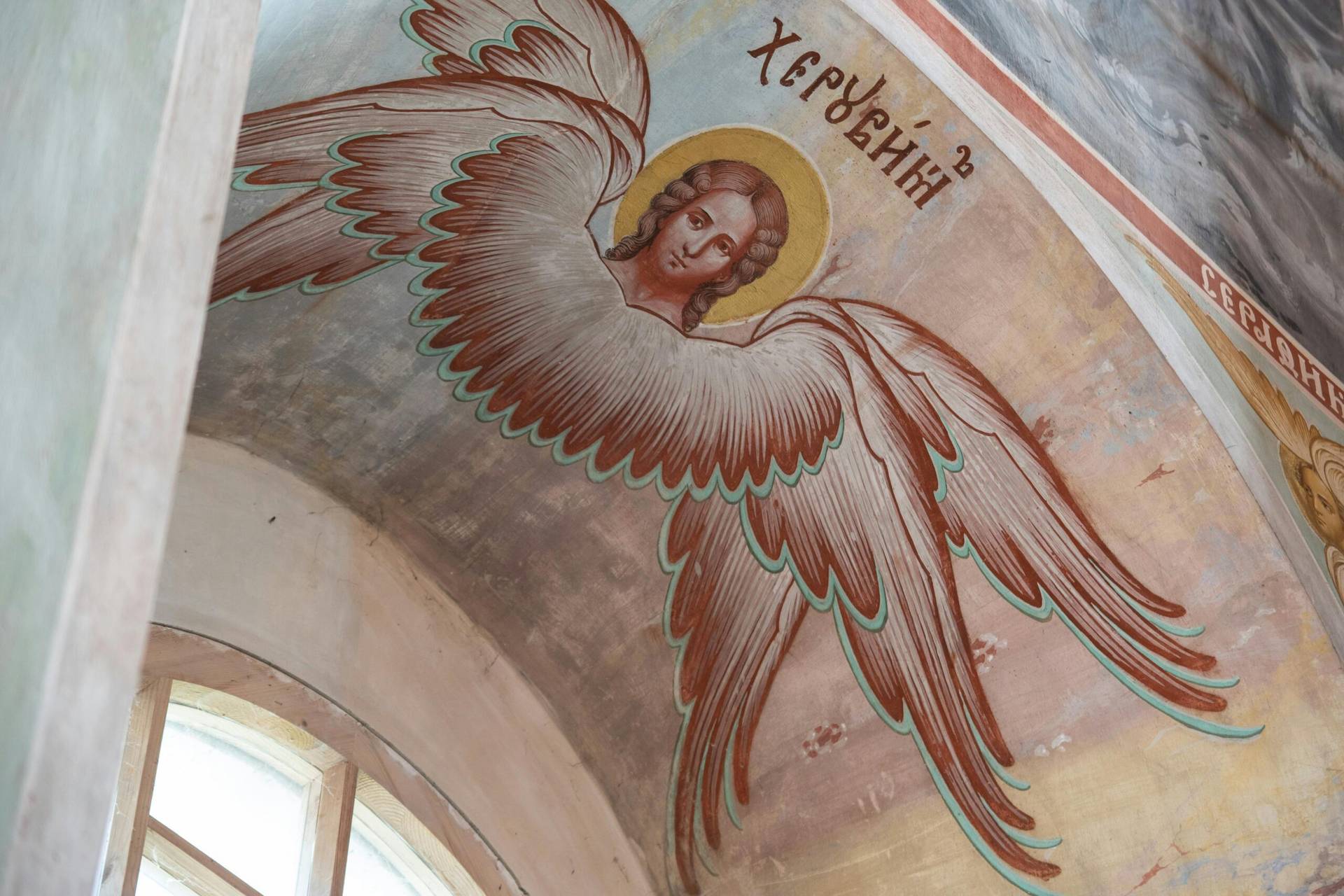This weekend we hear the familiar and challenging story of the Rich Young Man. The account is well placed in the season of Ordinary Time, when we are invited to recommit ourselves to the Lord Jesus and his way of love.
Approaching the Lord Jesus, the young man asks a revealing question: “Teacher, what good must I do to have eternal life?” The inquiry indicates an acknowledgment of eternity and of heaven. It shows his sincere desire when he asks, “What must I do,” as well as an acceptance of an objective criteria outside of himself. The young man cannot give the answer to himself. The answer is not solely within himself. He must look beyond his own world, his own confusion, his own suffering, and ultimately beyond his own desire.
Pope St. John Paul II teaches: “The question which the rich young man puts to Jesus of Nazareth is one which rises from the depths of his heart. It is an essential and unavoidable question for the life of every man, for it is about the moral good which must be done, and about eternal life.”
In the exchange, the Lord Jesus responds to the use of the term “good” by the rich young man. He indicates that the answer to his question can only be found in the One who is good, namely, in God. The Lord Jesus is pointing the rich young man to the things that are above him. But he misses it.
We hear again from Pope St. John Paul II: “To ask about the good, in fact, ultimately means to turn towards God, the fullness of goodness. Jesus shows that the young man’s question is really a religious question, and that the goodness that attracts and at the same time obliges man has its source in God, and indeed is God himself.”
In the exchange, the Lord Jesus emphasizes the objective order of life by summarizing the Ten Commandments. The Rich Young Man claims to have followed the commandments since his youth and so asks, “What still do I lack?”
This second question by the Rich Young Man points not only to our shared human vocation, but also to our particular vocation, namely, to our specific place and mission in the plan of salvation. While the commandments are universal and apply to all people in every circumstance, the mission given to each person is unique because each person is “one of a kind,” and so the details surrounding the who, what, when, where, why, and how are distinct to each vocation.
In terms of the rich young man, the Lord responded to his inquiry with a challenge and invitation: “Jesus said to him, ‘If you would be perfect, go, sell what you possess and give to the poor, and you will have treasure in heaven; and come, follow me.’”
We know from the context of the story that the young man was “rich” and so this was a very difficult summons. But the call to abandon his wealth to the poor would have to be accepted if he was going to follow the Lord, find his particular vocation, and receive eternal life. Of course, the Bible tells us that the young man declined the Lord’s call.
It would be a mistake to think that the Lord’s invitation is only about money. Quite the contrary. the Lord focused on what was distracting the young man from true discipleship. Jesus was calling him to abandon anything else that claimed an unconditional allegiance from him, or that provided him with a false sense of security. He was telling the young man, “Trust me. Leave what is taking you away from me and that is consuming your heart. Come, follow me!”
For the rich young man, money was absolutized. For many others in our day, it could be something else, such as our sense of autonomy, our desire for independence, a defiant connection to some “quality of life,” or a wayward desire to control the future.
In all of these, or in any other areas of our fallen world that might distract us, the Lord calls us to abandonment. He breaks through the exaggerations and summons us to leave the false securities of this world behind us and to pursue him alone.
The Lord Jesus gives us the same invitation he gave to the Rich Young Man. He looks at us, calls to us, and speaks those powerful words: “Come, follow me.”
Follow Father Jeffrey Kirby on Twitter: @fatherkirby

















